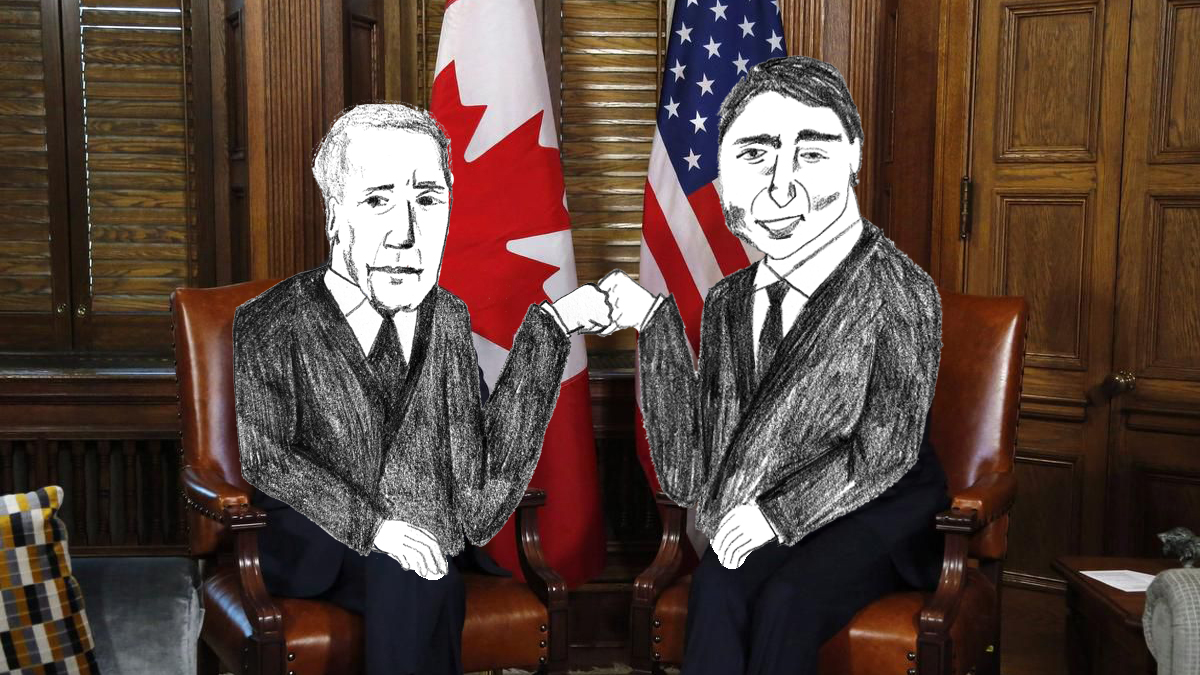The new administration’s pipeline stance not evidence of Trump’s lingering aggressive diplomatic strategy, says former U.S. diplomat
“The will of the people has been heard and the will of the people has been heeded,” said Joseph R. Biden, Jr., the newly sworn-in 46th president of the United States in his inauguration speech on Jan. 20, while overlooking Capitol Hill.
Sitting adjacent to the president, Vice President Kamala Devi Harris made history as the first Black and South Asian American woman to hold the position, along with her husband Doug Emhoff, the Nation’s first Second Gentleman.
Two weeks earlier, riots engulfed the government building, with right-wing protestors seeking to disrupt Biden’s electoral ballot certification, in an attempted coup to keep former president Trump in power.
Trump’s inaugural speech in 2017 told Americans they were witnessing “the birth of a new millennium,” where, “a new national pride will stir our souls, lift our sights and heal our divisions.”
After refusing to attend the new president’s inauguration, Trump departed Washington D.C. on Air Force One the same morning before official ceremonies began, leaving behind a nation unhealed.
In his inaugural speech, Biden acknowledged the violent insurrection at the Capitol that left five dead and dozens injured, the rise of civil unrest, political extremism, economic inequality, and a public health crisis that has killed over 400,000 Americans.
Instead of “America First,” Biden called for the nation’s commitment to progress and “that most elusive of things in a democracy: unity.” Reminiscent of John F. Kennedy’s inaugural speech, Biden asked to not solely rely on the government, but to do their part in healing the country’s strife.
Just over 39 million people watched Biden’s inauguration across major television networks. For the international community watching on, Biden said, “America has been tested, and we have come out stronger for it. We will repair our alliances and engage with the world once again.”
Prime Minister Justin Trudeau was one of the first world leaders to congratulate the Democratic party’s win, both during election week and after the inaugural ceremony. Over the past four years of the Trump administration, diplomatic tension rose between the two countries.
“Unprecedented, and a bit chaotic,” said Sarah Goldfeder, former U.S. diplomat and fellow at the Canadian Global Affairs Institute, on the previous administration’s relations with Canada. The “America First” policy marked an aggressive international stance, where the former administration sought to undo unilaterally beneficial agreements, to give preferential treatment to U.S. interests.
The former U.S. ambassador to Canada during the Trump administration, Kelly Craft, came with a mission to implement this new vision, Goldfeder explained.
“When she came in, there was a very distinct kind of focus to what she was here to do — and it ended up being NAFTA.”
While not completely overriding other countries’ interest as Trump initially promised, the administration did manage to replace the North American Free Trade Agreement (NAFTA) with the new United States–Mexico–Canada Agreement (USMCA) in March 2020, which included giving Americans an increase to 3.6 per cent from 3.25 per cent of the Canadian dairy market.
After a mere 22 months as ambassador, with a third of that time spent away from her post, Craft was moved to serve as Washington’s ambassador to the United Nations. During that time, there was no U.S. ambassador to Canada, causing a rift between the countries’ communications.
“That’s a big level of … connectivity, kind of a sub-political level that just wasn’t there,” said Goldfeder, on the lack of U.S. Ambassador to Canada.
With Biden promising to return to normal relations between countries, it came as a surprise to Canada when the new administration repealed the Keystone XL pipeline permit.
According to Goldfeder, this seemingly aggressive stance was not a continuation of Trump’s diplomatic practices, but a decision to return to former Democratic policies under the Obama administration.
“I think [what] Canada forgets [about] the Keystone presidential permit is that that decision was actually made initially, in 2015, to not grant the presidential permit by the Obama administration,” said Goldfeder.
Initially proposed in 2008, it took more than 10 years of conflicting political debate for the pipeline to come to end, with Obama’s vetoing of the project in 2015. In his decision, Obama acknowledged the pipeline would not contribute to the administration’s work towards sustainability and the fight against climate change.
Overall, Goldfeder has high hopes for the new administration.
“I think that what you’ll see with the Biden administration is a return to professionalism.”
Also in agreement is Graham G. Dodds, professor & associate chair in the department of Political Science at Concordia University, who feels that the new administration “will likely be a welcome change for Canada.”
The past four years hurt Canada’s close relationship with the U.S.; however, “common interests and shared values” is the bedrock of the two countries’ relationship, not who is leading the respective countries, said Dodds. But it doesn’t hurt to work with someone you see eye-to-eye with either.
“As someone well acquainted with facts, reason, and civility, Biden will likely be much easier for Canada and other allies to deal with than his erratic and caustic predecessor,” said Dodds.
Graphic by Lily Cowper
